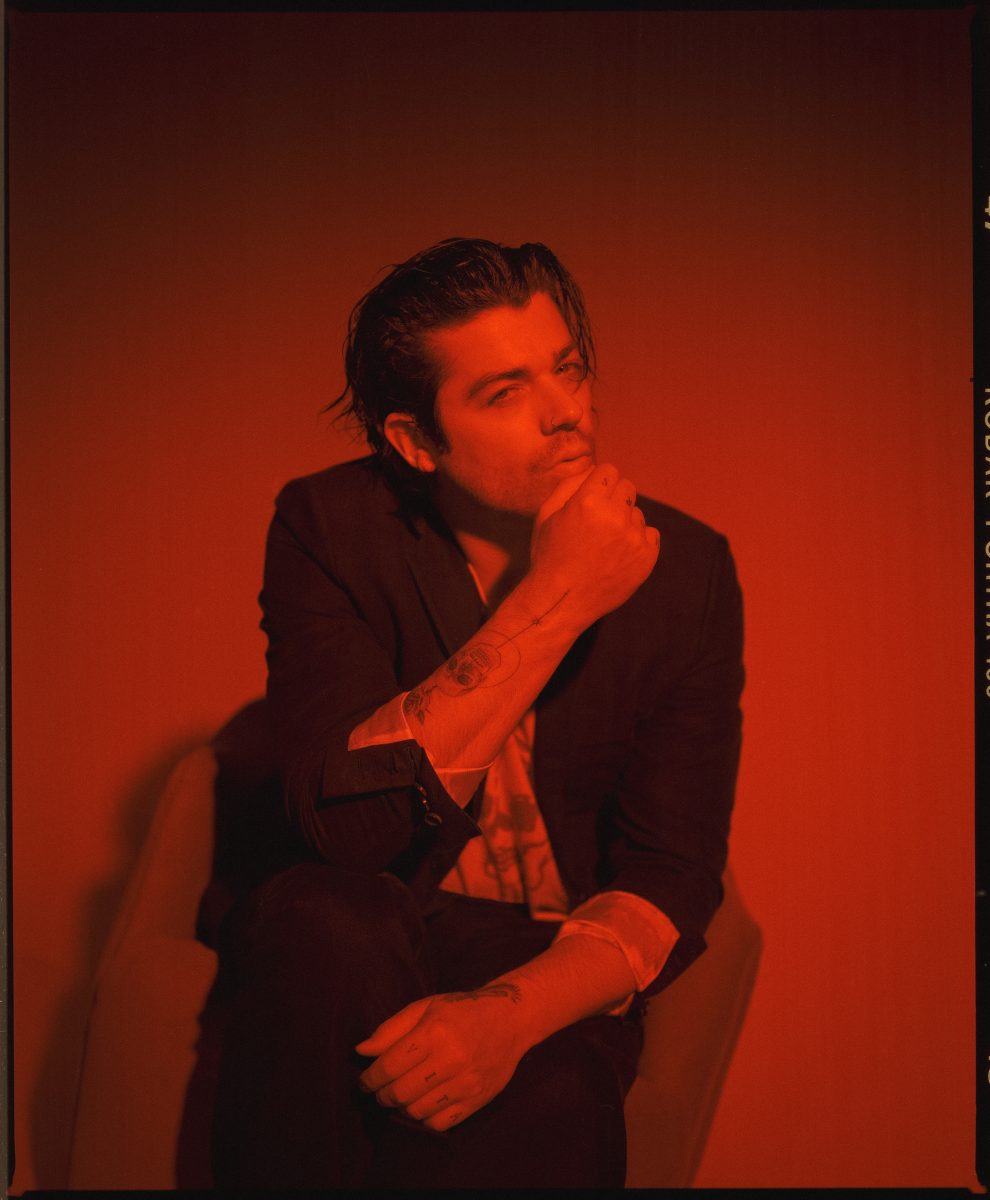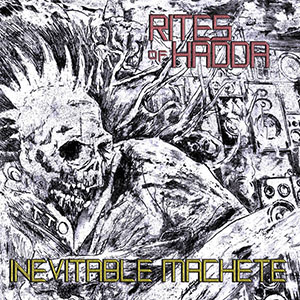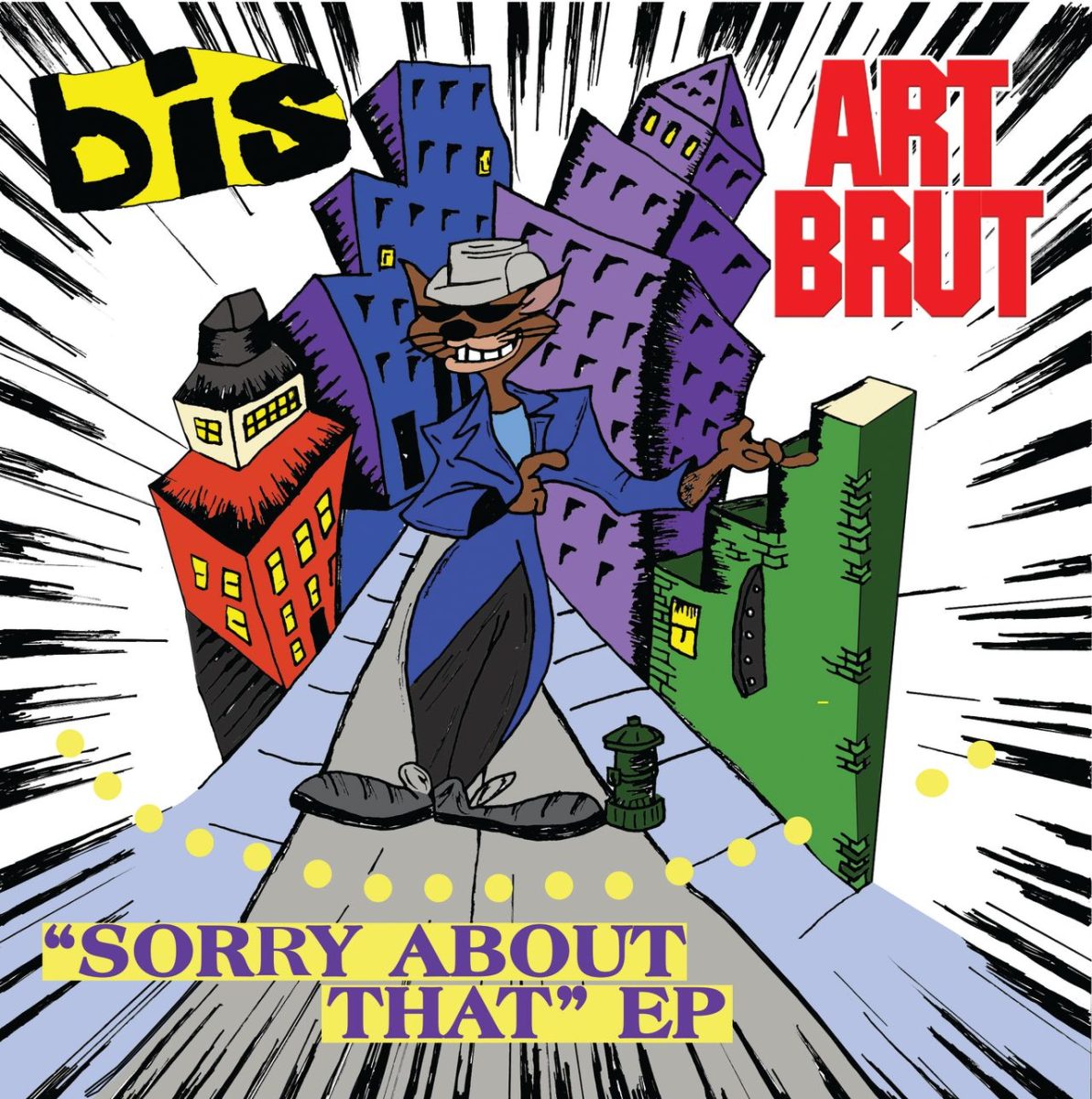Rett Smith’s fifth studio album, A Physical Persistence, captures the sound of an artist breaking through his own limits. Written, recorded, and produced entirely in isolation, the record finds Smith peeling rock music back to its purest, most volatile form, fusing analogue grit with the restless energy of post-punk and the storytelling spirit of Americana.
Across eleven tracks, A Physical Persistence is a visceral study in duality: beauty and brutality, control and chaos, faith and fury. Every moment hums with tension, thrashing guitars, drone-heavy vocals, and thunderous percussion colliding with lyrical vulnerability and philosophical bite.
End On Top opens the album with a strike of fuzz and caffeine that arrives fully formed, recorded front-to-back with no overdubs and no safety net. That immediacy becomes the album’s guiding force: from gut-punch gospel of Tell Me There’s a God, to the swagger and sting of Seaside Regret, the eleven track release drives through flavours of blistering punk-blues and others which lean further towards Americana.
Mastered at Abbey Road, yet recorded with the grit of a garage confession, A Physical Persistence is Rett Smith’s most complete and uncompromising work to date. In this track-by-track interview, Smith walks us through the riffs that woke him up, the ghosts that won’t leave, and the moments that nearly broke him.
End On Top:
Oh this is a ripper of a track! (If I don’t mind saying so myself ha!)
E.O.T began with the guitar riff. I had woken up very early and – in a haze – the open string heaviness came to me, surely due to the copious amounts of coffee consumed. It was one of those rare instances where a song is fully formed out of the gate. I quickly set up the mics and cranked my old Marshall Plexi and a fuzz pedal. Once dialed in, I recorded the guitar front to back, no punch-ins or overdubs. I wanted the lyric to match that immediate energy, with an almost deadpan approach to self-destruction. This song really set the tone and direction of the album!
Tell Me There’s A God:
This song was comprised of two separate pieces that existed in their own worlds: a poem by the same name and this slide guitar riff idea I’ve had in my head for quite a while, not wanting to rush or waste it on some bullshit. I was in my studio about halfway through the recording of the album when it became super clear how it should go (usually what that means is I finally land on a tempo that makes itself obvious). Once the slide guitar was laid down I was trying some different melodies, none quite right. That evening, while listening back with a heavy pour, I remembered the poem and it fitted perfectly, just needed the chorus – which was no problem. The whiskey gods smiled kindly on me and I recorded the vocal quickly before the melody was lost. The drum and bass performance by Chris Barber and Mike Rinne is next-level. (They played on the entire record and are ABSOLUTE MONSTERS!)
Seaside Regret:
This cheeky little number starts with some naughty words and a scenario I usually don’t write about so bluntly! I’ll let the listener decide what it’s about but it’s not exactly vague! This is also one of the few songs on the album I allowed myself to overdub guitar solos on, which is quite indulgent in my torture chamber of solo recording. A sexy song with a vulnerable chorus, big guitars and a middle 8 breakdown – chef’s kiss baby, sign me up!
Desert Downfall:
This track is the first and only co-production of my last four albums, and it came about in the best way. I was able to reconnect with Johnny What, who prior to producing huge artists (like THE WHO), recorded little ole me in his tiny flat – the first ever music I ever made or demoed! We both went on quite the journey and to find each other again is something I’m extremely grateful for. I had a demo of this song and we went back and rewrote it, with J then mixing it at his studio in LA. I wouldn’t be here today without him and I love what we did with this one.

November 63:
This song comes from my mother’s memory of being a little girl in Dallas the day Kennedy was shot. She was just down the street when it happened – schools closed, the whole city frozen and a country in shock. I didn’t write November 63 as some conspiracy piece or to chase the mythology around that day. It’s the opposite. It’s about how that moment – that single, public rupture – marked the beginning of the downfall of American politics. It was the instant when innocence, optimism, and moral clarity seemed to vanish. I wanted to capture that through a child’s eyes, before cynicism existed, before the world felt staged. This day was pivotal for my family in ways I’m just now beginning to grasp.
“What happened, Jack / What we needed most,” isn’t questioning how he died; it’s mourning what died with him – trust, unity, and the idea that leadership could still come from hope instead of power. For me, this song isn’t about loss in the past tense – it’s about recognising where the fracture began and how we’ve been living inside it ever since.
Soft Boy:
Soft Boy came from watching a generation of guys cosplaying while never taking any responsibility in their own lives. It’s not about one person, it’s about a type. I wanted to write something that mocked the curated masculinity you see everywhere – the faux grit, the influencer cowboy, the guy who thinks irony is depth. We all know the performative male. There’s humour in it, but underneath that is disgust at how detached it’s all become. The idea of rebellion got hijacked by branding and conformity. Real struggle got replaced with self-pity disguised as sensitivity. It’s not anti-vulnerability – it’s anti-social media savior boy.
I cut the track like a punk-blues séance – I wanted it to sound sweaty and alive – the opposite of the slick image the song’s calling out. “You’re not John Wayne / Just a sad little lame” sums it up – that false toughness built on entitlement instead of conviction. Soft Boy isn’t a diss track but a reminder to us all. Myself included.
Mobile Lord:
This is one of the first tracks I recorded for the album. I was writing the riff and again found it through the tempo – super fast and without any generic filler. The lyric is important to me and kind of continues the theme I just spoke about on Soft Boy. It felt like everywhere I looked, people were shouting into their phones, convinced it meant something. Mobile Lord is about that – performative outrage, social media self-worship, and how the powerful feed off that noise to keep us divided. “Tell that man on Instagram about my useless fucking vote” should clear up how I’m feeling regarding the electoral college.
Straight Into Me:
This song kicks off the final act of the album. I love the more punk aspect of the melody and how it continues to just drive ahead. I’m confronting heavy personal issues in this song, but the excitement in the riff keeps it from becoming a downer.
Let You See Inside Me & In Flames My Fear:
These next two songs are the most shoegazey on the record and I love how they translate live. I adore MBV and Slowdive and was listening to them constantly while making this album.
Old Dog, New Tricks:
This song was written for a huge movie, who then “borrowed” the concept and arrangement for another person to record without paying me. I made it the album closer as a “FUCK You” to them. 🙂
Follow Rett Smith
~
All words by Simon Lucas-Hughes. More writing by Simon Lucas-Hughes can be found at his author’s archive.
A Plea From Louder Than War
Louder Than War is run by a small but dedicated independent team, and we rely on the small amount of money we generate to keep the site running smoothly. Any money we do get is not lining the pockets of oligarchs or mad-cap billionaires dictating what our journalists are allowed to think and write, or hungry shareholders. We know times are tough, and we want to continue bringing you news on the most interesting releases, the latest gigs and anything else that tickles our fancy. We are not driven by profit, just pure enthusiasm for a scene that each and every one of us is passionate about.
To us, music and culture are eveything, without them, our very souls shrivel and die. We do not charge artists for the exposure we give them and to many, what we do is absolutely vital. Subscribing to one of our paid tiers takes just a minute, and each sign-up makes a huge impact, helping to keep the flame of independent music burning! Please click the button below to help.
John Robb – Editor in Chief






Leave a Reply